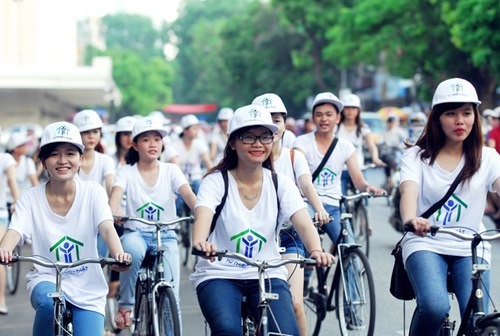 Society
Society

More incentives are required to encourage citizens to use bicycles instead of motorbikes, Khuất Việt Hùng, vice chairman of the National Traffic Safety Committee, said.
 |
| More incentives are required to encourage citizens to use bicycles instead of motorbikes, Khuất Việt Hùng, vice chairman of the National Traffic Safety Committee, said. — Photo |
HÀ NỘI — More incentives are required to encourage citizens to use bicycles instead of motorbikes, Khuất Việt Hùng, vice chairman of the National Traffic Safety Committee, said.
“We should come up with more incentives so that bicycles become a means of transportation to work, especially on roads where the speed limit is 30km per hour,” Hùng said during a conference promoting a bicycle sharing model in Hà Nội this morning.
He said the Vietnamese were too dependent on motorbikes, which were the cause of traffic jams in major cities.
Trần Hữu Minh, deputy chief of the committee, said the country’s infrastructure needed to develop further for cycling to become common. For example, there should be lanes specified for bicycles, bicycle stops, parking lots and maintenance locations, he said.
Nguyễn Xuân Thủy, an independent traffic expert, said it was unlikely that bicycles would become a principal means of transportation in the city.
“Those who live in the suburbs can’t cycle from there to the city’s centre every day,” he said. “It will not be until 2025-30, when the city’s metro and bus systems have advanced, that citizens will be able to cycle to work on a daily basis.”
The conference was held to raise concerns and increase participation in a public multi-point bicycle sharing project, which piloted the use of solar energy and electric motorbikes in the city.
A report from the Vietnam Cleaner Production Centre showed that the project reduced some 20 tonnes of CO2 compared with the use of diesel motorbikes after just two years of implementation.
The project, titled “BK-Ebike,” was implemented by a development company under the Hà Nội Polytechnic University.
It aims to put some 12.000 bicycles and electric motorbikes in use and install 400 electric motorbike recharging and rental stations at universities by 2020. — VNS